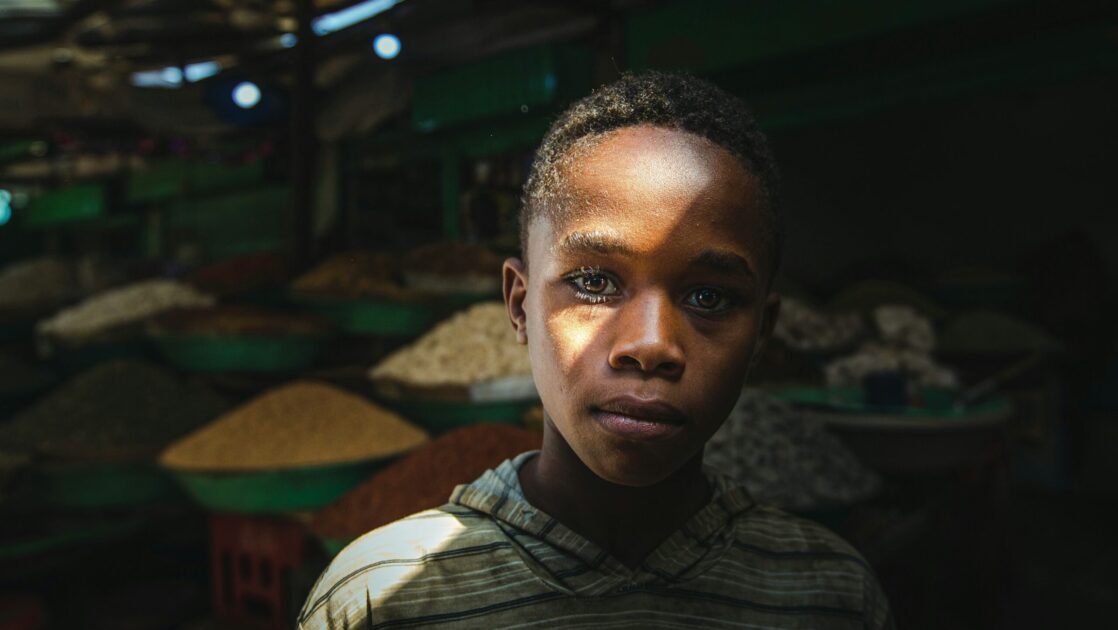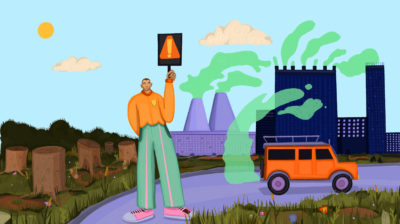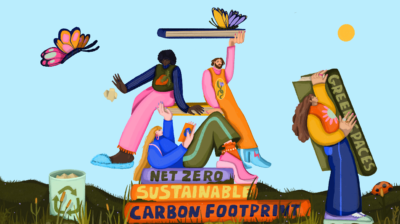How the climate crisis is impacting people in the global south
Speaking with a local from Sudan in North Africa, Fatima reveals how rising global temperatures unfairly affect the Global South.

With global temperatures rising, we risk reaching a stage where the damage will be irreversible. The climate crisis is a global issue but now more than ever we see how communities living in the Global South are far more affected by the actions of people living in the Global North.
A study by Lancet Planetary Health found the Global North was responsible for 92% of global emissions. However, the people of the Global South suffer the most effects and don’t have adequate resources to respond to the issue.
Impact of Climate Change in Sudan
I spoke with Nadir Abdullahi Haj Elkhider, the Secretary of the Flower Exhibition, in Rufaa, Sudan who explicitly explained the effects of climate action on the agriculture sector in Sudan.
The flower exhibition is a gathering for plant lovers and the agricultural sector in general in which plants and flower arrangements are displayed in the city of Rufaa. It is held each February, as it is the best time in Sudan for weather and climate.
The weather tends to cool and that is the best period for flowering plants. However, in recent years, it has been noted that even these cooler months are becoming increasingly hotter which is impacting the flower exhibition and much more.
Mr Elkhider noted that many crops have failed this year and others suffered from a significant loss in numbers. The agricultural sector in Sudan is one of the sectors most affected by the climate and some crops have become difficult to produce.
One of those crops is wheat, which is a winter crop. With temperatures increasing in recent years and the number of cold days decreasing, wheat production has been gravely impacted.
This has led to price increases in bread, a staple for many families. It has also caused a wider trade crisis leading to an increase in the use of black markets to obtain crops and other goods.
Droughts and severe floods have also begun to reoccur significantly in Sudan. Many crops have been destroyed due to floods. Similarly, drought is leading to a shrinking agricultural area with land drying out and becoming desert.
Supporting communities impacted by the climate crisis
Nations especially impacted by the climate crisis, such as Sudan, must be able to build climate resilience, and there are some ways that wealthier, high-emitting countries can help with this.
This involves combining local and global knowledge on innovative agricultural practices that are resilient to environmental changes. Empowering local farmers with techniques for sustainable crop cultivation and water conservation is pivotal in ensuring food security and promoting long-term resilience. Access to clean water and reliable energy sources are fundamental human rights for the survival and development of communities in the Global South.
Therefore, discussions at COP28 must emphasise providing funding and humanitarian assistance to enable countries to establish essential infrastructure for clean water supply and sustainable electricity generation. By strengthening their response to the impacts of climate change, these nations can effectively protect themselves against the impending challenges.
One of the primary areas of focus lies in the widespread adoption of renewable energy solutions. COP28 should prioritise much-needed discussions on the use of solar, wind, and hydroelectric power, as well as other emerging forms of renewable energy, to reduce the world’s dependence on fossil fuels.
By encouraging the widespread use of renewable energy technologies, nations can significantly reduce their carbon footprint, reduce the adverse effects of climate change and foster a more sustainable energy landscape for future generations.
Implementing climate-resilient infrastructure is essential in safeguarding communities in the face of environmental challenges. This involves prioritising the use of innovative construction materials, designs, and techniques that are specifically tailored to withstand the impacts of extreme weather events, rising sea levels, and other climate-related disruptions.
Technology to combat climate change
Additionally, using monitoring systems and their data can greatly help in making well-informed decisions and effectively managing climate-related matters.
By making use of monitoring tools, countries can strengthen their ability to give early warnings, keep track of the environment, and create accurate models of the climate.
This real-time information can give policymakers and those involved in decision-making the knowledge they need to create plans and take action based on solid evidence. This approach helps in being more prepared and adaptable in dealing with the problems caused by climate change.
The UN’s Sustainable Development Goals (SDGs) are committed to ensuring everyone is cared for, which is very important when facing global challenges. However, because dealing with climate change is so urgent, it’s necessary for the ideas of climate fairness and fairness in general to be a central part of international climate discussions at COP28.
The summit needs to focus on discussing how actions to address climate change affect the Global South, where vulnerable communities are at risk from the upcoming consequences of climate change.
Need more information, advice or guidance?
We offer information, advice and guidance about the issues that matter to you. Our online Youth Information Chat service is for 16 to 25 year olds and is available Monday to Friday, 4pm to 8pm (excluding Bank Holidays).






